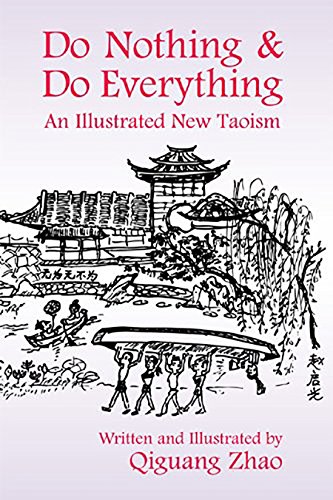
Taoism and the Path to a Better Life
In the quest for a fulfilling and harmonious life, many people turn to ancient wisdom for guidance. Taoism, a philosophy and spiritual tradition originating in China over 2,500 years ago, offers profound insights into living in harmony with the natural world and finding inner peace. By embracing the principles of Taoism, we can cultivate a balanced, serene, and more meaningful existence.

The Essence of Taoism
At the heart of Taoism is the concept of the “Tao,” often translated as “the Way” or “the Path.” The Tao represents the fundamental nature of the universe, an all-encompassing force that flows through all things. Rather than a deity or an entity, the Tao is an abstract principle that cannot be fully described or understood but can be experienced and lived.
Taoism emphasizes living in accordance with the Tao, embracing simplicity, spontaneity, and naturalness. Key texts such as the Tao Te Ching by Laozi and the Zhuangzi by Zhuang Zhou provide timeless wisdom on how to align oneself with the Tao and lead a balanced life.
Principles of Taoism for a Better Life
- Wu Wei (Effortless Action)
One of the core principles of Taoism is wu wei, which translates to “non-action” or “effortless action.” This doesn’t mean inactivity but rather acting in harmony with the natural flow of life. By letting go of forceful effort and allowing things to unfold naturally, we can achieve more with less stress and resistance. It’s about finding the path of least resistance and flowing with the current rather than against it.
- Simplicity and Minimalism
Taoism advocates for a simple and minimalist lifestyle, free from excessive desires and materialism. By decluttering our lives and focusing on what truly matters, we can find greater contentment and peace. This simplicity extends to our thoughts and actions, encouraging us to live authentically and straightforwardly.
- Harmony with Nature
Nature holds a special place in Taoism. The natural world is seen as a reflection of the Tao, and living in harmony with nature is a way to align with the Tao. Spending time in nature, observing its rhythms, and respecting its cycles can help us reconnect with the world around us and find inner balance.
- Balance and Moderation
Taoism teaches the importance of balance in all aspects of life. This includes balancing work and rest, activity and stillness, and indulgence and restraint. By avoiding extremes and seeking moderation, we can maintain a stable and harmonious existence.
- Mindfulness and Presence
Being fully present and mindful in each moment is a cornerstone of Taoist practice. By paying attention to our thoughts, emotions, and surroundings, we can cultivate a deeper awareness and appreciation of life. This mindfulness allows us to respond to situations with clarity and calmness rather than reacting impulsively.
- Compassion and Humility
Compassion and humility are valued virtues in Taoism. Treating others with kindness and empathy, and recognizing our own limitations, fosters harmonious relationships and a sense of interconnectedness. By embracing humility, we can let go of ego-driven desires and find peace in our interactions with others.
Applying Taoist Principles in Daily Life

Integrating Taoist principles into our daily lives can lead to profound positive changes. Here are some practical ways to do so:
- Practice Mindfulness: Take time each day to be fully present, whether through meditation, mindful breathing, or simply observing your surroundings without judgment.
- Simplify Your Life: Declutter your living space, prioritize meaningful activities, and let go of unnecessary possessions and commitments.
- Spend Time in Nature: Make it a habit to connect with nature regularly, whether through walks, gardening, or simply sitting outdoors and observing.
- Embrace Wu Wei: Identify areas where you may be exerting excessive effort and find ways to flow more naturally with the situation.
- Cultivate Balance: Ensure you have a healthy balance between work and leisure, activity and rest, and socializing and solitude.
- Practice Compassion: Show kindness and empathy in your interactions, and be patient and understanding with yourself and others.










